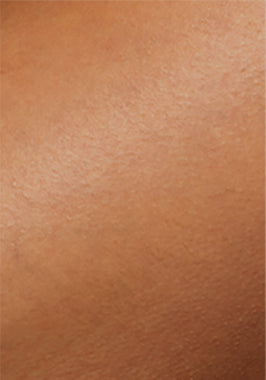Laser hair removal treatment can do wonders to the treatment area such as hair-free, smooth, soft, glowing and sexy skin, but a single wrong step by the patient or the beautician can make the result worrying. Hyperpigmentation is one of the most common side effects of laser hair removal if done improperly.
This article explains what hyperpigmentation is, whether it goes away, and if so, how. It also explains some methods patients can use to prepare for and protect themselves from hyperpigmentation after laser hair removal.
- Part 1: Understanding Hyperpigmentation
- Part 2: Does hyperpigmentation go away after laser hair removal?
- Part 3: How to treat hyperpigmentation with laser hair removal?
- Part 4: Ways to prevent hyperpigmentation before laser hair removal
- Part 5: Conclusion
Understanding hyperpigmentation
Hyperpigmentation is the change in skin color at the treated area, usually a darker shade. This worsens the appearance of the skin and causes irritation at the affected area.

Hyperpigmentation can occur due to negligence of the patient and/or the beautician, lack of experience, etc. The discoloration occurs when the lasers stimulate the skin cells responsible for skin pigmentation. This only happens when something goes wrong during the treatment. People divide hyperpigmentation into different types:
Sunspots
When the skin is exposed to direct sunlight long enough to react with the sunlight, the skin becomes darker. The next version of this is sunburn. Sun spots can disappear on their own, but it is better to treat them with medications or creams.
Post-inflammatory hyperpigmentation
Immediately after treatment, the skin may darken due to inflammation, but this should disappear in a few hours or perhaps a few days. This indicates that the skin cells have been damaged by the excess heat from the laser.
Beginning of hyperpigmentation
As the skin begins to heal after laser hair removal, melanin stimulation can cause hyperpigmentation, which occurs a few days after treatment.
Melasma
In this case, the patient notices brown spots on the face, which are usually caused by hormonal changes during pregnancy or by taking contraceptives.
How does laser hair removal cause hyperpigmentation?
When the lasers reach the melanin, the light energy is converted to heat energy, but this heat remains controlled enough to only damage the hair follicles. This is called inflammation. However, sometimes the excessive heat can cause the pigment-producing cells in the skin to produce more melanin, resulting in dark spots in the treatment area.

In another scenario, sometimes the skin begins to heal from the heat of the laser treatment. During the healing process, the treated area may darken, which is usually seen in people with darker skin tones.
Does hyperpigmentation go away after laser hair removal?
Yes, the hyperpigmentation caused by laser hair removal fades after some time as it is a temporary skin reaction. In most cases, it fades on its own after some time while in severe cases, doctors make the pigmentation disappear with the help of medications. As the skin heals, the pigmentation starts to fade and eventually disappears.
Here you can learn how the skin heals and hyperpigmentation disappears:
- Immediately after the treatment, the skin begins to react to the injuries and the healing process begins.
- During healing, inflammation occurs, which helps in the repair of damaged skin cells.
- The body replaces damaged cells with new cells and the tissue begins to regenerate.
- To support the tissue, collagen production begins and the tissue structure is strengthened.
- The further the tissue reconstruction progresses, the better the skin's appearance becomes.
- Gradually the hyperpigmentation disappears.
- Once the tissue has healed, the hyperpigmentation disappears completely and the appearance of the skin is restored.
What factors influence the healing time of hyperpigmentation?
- Skin tone: Dark skin tones take longer to heal from hyperpigmentation than light skin tones.
- Laser intensity: Depending on how deep the laser penetrated into the skin or how intense the laser was, the duration of hyperpigmentation is influenced.
- Post-treatment care: Careless post-treatment will prolong the healing time, while good nutrition and care of the affected area will contribute to rapid healing.
- Sun exposure: If the patient exposes the affected area to direct sunlight, even for a short period of time, the healing process of hyperpigmentation will be slowed down.
- Skin reaction: Regardless of age, gender, skin color and hair color, everyone's skin heals differently. People with a good immune system and very healthy skin will see a faster healing process.
- Skin sensitivity: Sensitive skin is more prone to persistent hyperpigmentation and the healing process is generally slower in sensitive skin. Extra care and precautions are strongly recommended.
- Pre-existing health condition: If the patient already suffers from certain health problems such as diabetes, skin problems, etc., then she must expect that the hyperpigmentation will persist for a longer period of time.
How to treat hyperpigmentation with laser hair removal?
Yes, it is possible to treat hyperpigmentation resulting from laser hair removal. There are topical and natural remedies as well as home remedies. But if all these remedies fail, professional help can surely solve the problem. In this section, these solutions are explained.

Topical treatment options
These topical treatments are generally available over the counter and are effective enough to treat mild hyperpigmentation.
- Hydroquinone: It is available in the form of a cream or gel that lightens the skin. This skin lightening agent can block melanin production and thus stop further hyperpigmentation.
- Kojic acid: Its function is similar to that of hydroquinone and is sold as a cream, serum and cleanser. This acid is extracted from mushrooms.
- Retinoids: These come in different strengths and formulations that help the skin to renew itself and overcome hyperpigmentation.
Professionally recommended treatment options
In severe cases, topical treatments may be ineffective and a doctor may suggest some of these treatments:
- Chemical peels: They are available as superficial, medium and deep peels that act like a real peel. Chemical peels improve the skin structure and correct hyperpigmentation.
- Microdermabrasion: It is another peeling procedure using crystals or a diamond-tipped wand. The peeling is designed to remove the pigmented skin cells, improve the skin texture and fade hyperpigmentation.
- Laser therapies: Laser therapies target and treat pigmented skin cells to remove scars, wrinkles, hyperpigmentation, etc. Some variants are IPL-Fractional Laser, etc.
Natural remedies & home care

- Applying aloe vera gel to the affected areas helps improve skin texture, brighten the skin, provide it with more nutrients and moisture, and in some cases overcome hyperpigmentation.
- Turmeric powder mixed with yogurt helps with inflammation and lightens the skin.
- You can make a natural skin mask using lemon juice and honey. The natural acids in lemon juice lighten the skin and when you apply it to the affected areas, the hyperpigmented cells will lighten.
- To support the natural healing process and increase the healing speed, you can apply vitamin E oil, which provides additional nourishment for the skin.
- Cut cucumber slices and place them on the affected area to cool and hydrate it at the same time.
In addition to these natural remedies, the patient should take care of the skin at home and follow these tips:
- Be sure to wear sunscreen, even on cloudy days.
- Always use mild and gentle cleansers to wash your face twice a day.
- Consider using products that contain antioxidants to aid the healing process and improve skin feel.
- Never forget to moisturize your skin.
- Keep irritants away from your face until hyperpigmentation has subsided.
- If the skin burns, use a cold compress to cool the skin and relieve irritation.
Ways to prevent hyperpigmentation before laser hair removal
Avoid excessive sunlight
Always use sunscreen, keep the treatment area covered and avoid direct sunlight when visiting a salon. Too much sunlight leaves damaging effects on the skin and makes it vulnerable to further damage during the cosmetic procedure. Using the right sunscreen is a smart idea.
Do not use chemical products
Certain chemical products such as self-tanners, aggressive skin care products, etc. are rough and harsh on the skin and damage it on a microscopic level. Such damage to the skin is dangerous right before a laser hair removal treatment.

Be gentle to the skin
Always wash the face gently on the day of treatment and avoid picking or waxing as the day of treatment approaches. Using depilatory creams can worsen the laser treatment. Let the skin relax and nourish it so it is ready for the upcoming laser treatment.
Examine the skin
Check the skin regularly for cuts, burns, acne, etc. and treat them with the right medications. Make sure there are no cuts or wounds on the face on the day of the laser treatment. However, acne can make the treatment even more difficult.
Conclusion
Hyperpigmentation is indeed temporary and one can treat it at home if it is mild. For severe cases, doctors have various treatment options. With simple but smart tips and proper skin care, the patient can avoid hyperpigmentation during laser hair removal. To choose the right skin care plan, one must consider one's skin sensitivity and use only gentle and trustworthy products. If the skin is still difficult to manage or if the hyperpigmentation seems to be bothersome, you should definitely consult a dermatologist.




























